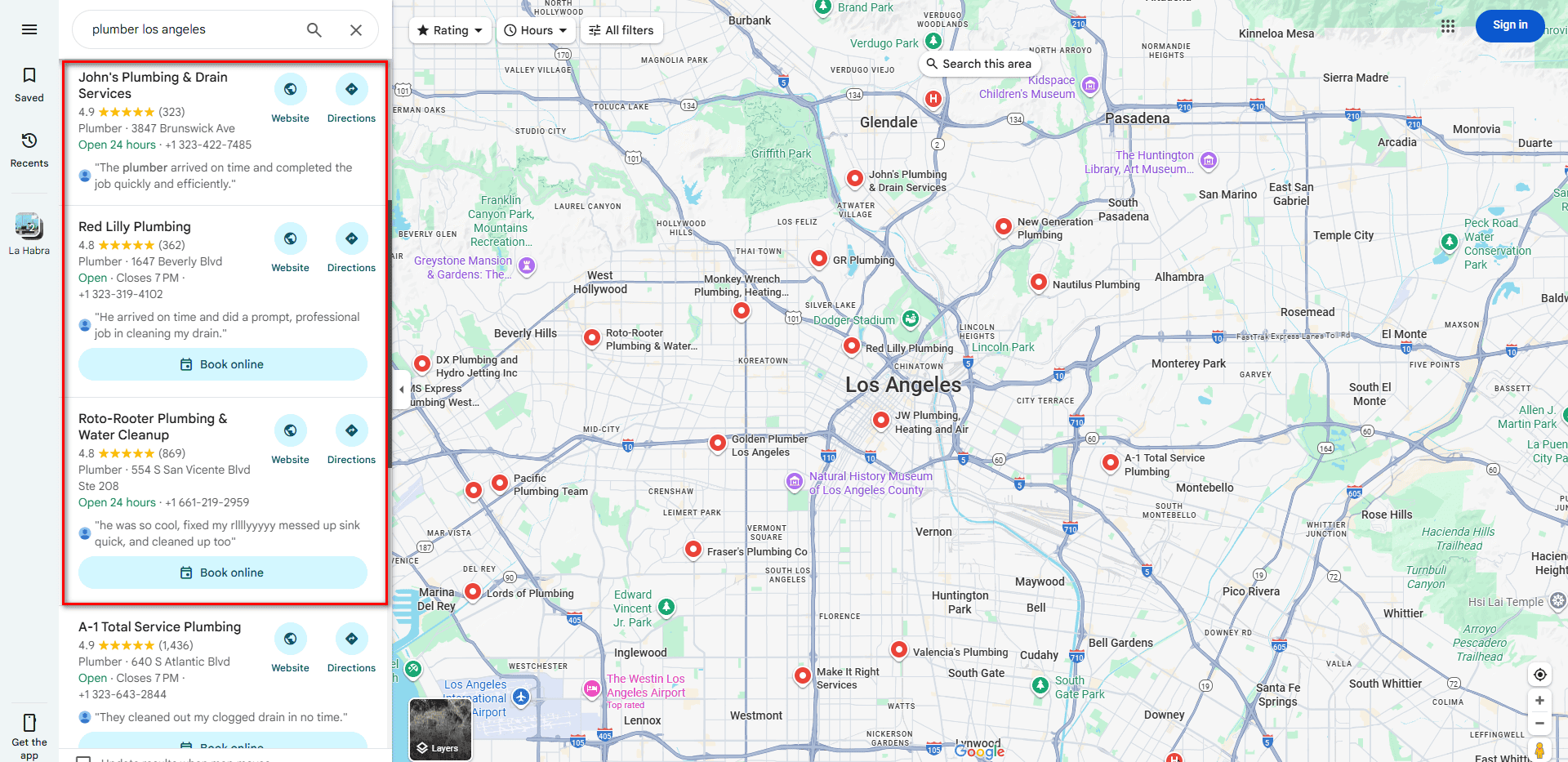Course 2: Local SEO - Dominate Your Service Area
Master the strategies that put you in the Google "local 3-pack" where 80% of customers click. Learn why local SEO is different from regular SEO and why most businesses get it completely wrong.

Lesson 1: The Google Local 3-Pack Rules Everything
When customers search "dentist near me," Google shows a map with 3 businesses at the top - this is the local 3-pack. These 3 spots get 80% of all clicks. Being #4 means you might as well be invisible.
The local 3-pack appears for searches with local intent: "attorney in Boston," "emergency appliance repair," "kitchen remodeling contractor near me." If you're not in these top 3 positions for your most important keywords, your competitors are getting your customers.
Key Point: Local 3-pack rankings are more valuable than page 1 organic rankings - fight for these 3 spots above everything else.
Lesson 2: The Business Information Nightmare That Kills Local Rankings
Google is obsessive about consistency. If your landscaping business name is "ABC Landscaping LLC" on your website but "ABC Landscaping" on Yelp and "ABC Landscaping Company" on Yellow Pages, Google gets confused and assumes you're either sloppy or trying to manipulate the system.
This inconsistency is called NAP (Name, Address, Phone) chaos, and it's the #1 reason businesses struggle with local rankings. Google checks your information across hundreds of websites and directories. Even tiny differences like "St." vs "Street" can hurt your local visibility.
Most business owners have no idea their information is wrong in dozens of places online, slowly destroying their local search performance every day.
Key Point: Inconsistent business information across the web confuses Google and kills your local rankings - most businesses don't even know they have this problem.
Lesson 3: Why Your Competitors Appear in Multiple Cities (And You Don't)
Ever wonder how some roofing companies dominate search results across multiple cities while you struggle to rank in even your hometown? They understand location targeting strategy.
Creating separate, unique content for each service area tells Google you're a legitimate local business in multiple markets. But most businesses either ignore other cities completely or create duplicate pages that Google ignores or penalizes.
The businesses winning multiple local markets have cracked the code of location-specific optimization. They don't just list cities they serve - they prove they understand and serve each market uniquely.
Key Point: Dominating multiple cities requires strategic location targeting that most businesses don't understand or implement correctly.
Lesson 4: The Local Trust Signals That Google Demands
Google doesn't just want to know your pest control business exists - it wants proof that you're a legitimate, established company in your community. This verification process separates businesses that dominate local search from those that struggle on page 2.
Google looks for digital footprints that prove you're genuinely connected to your local market. These trust signals demonstrate you're a real local business rather than a website pretending to serve an area from hundreds of miles away.
Without these local credibility markers, you're competing with a major disadvantage. Businesses with strong local verification signals don't just rank higher - they maintain those positions even when Google changes its algorithm.
Key Point: Local trust verification is essential for long-term local search success, but most businesses don't understand what signals Google is looking for.
Lesson 5: The Location Tracking Mistake That Wastes Marketing Dollars
Most auto repair shops guess at their local SEO performance or only check rankings from their office computer. But local rankings change based on where the searcher is located - you might rank #1 from your office but #8 from across town where your customers actually are.
Without proper local ranking tracking across your entire service area, you're flying blind. You might be investing time and money optimizing for keywords where you already rank well while ignoring areas where you're losing customers to competitors.
Professional local SEO requires tracking your rankings from multiple locations within your service area to understand where you're winning and where you're losing.
Key Point: Local rankings vary by location - you need proper tracking to know where you really stand in your entire service area.